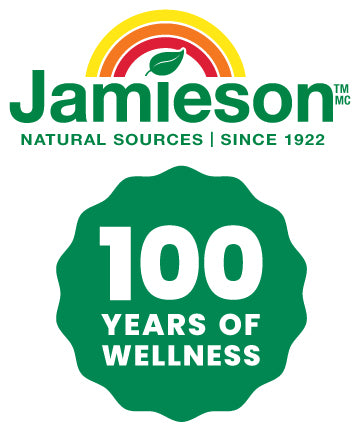Getting older is inevitable, and often thought of in a negative context. Many will associate aging with slowing down and not being able to live life the way they may have in earlier years. A question that I would like to pose to you is, do you pay attention to the health and vitality of those around you? I can tell you from personal experience that I will often look at those the same age as me as well as 10-15 years older and younger than I am to gauge where I am health-wise. It always amazes me when I meet someone who is 20+ my senior and they are feeling great in their skin and able to take part in the physical activities that bring them joy. It’s so interesting that when you start to pay attention to those around you, you begin to identify 2 camps of people – those who make it a priority to look after themselves holistically and those who do not.
Now we are in the business of education, and frankly there is not enough information on healthy aging out there that is scientifically backed and easily accessible by the average person. So, today’s blog is dedicated to those of you who are looking for a little insight as to what nutrients you can really lean-on during different stages of your life. At the end of the day, aging is inevitable – but how you feel is something that is in your court.
Teen years
Let’s start with teens. Similarly, to adults, each teen will have their own specific requirements based off their unique makeup. Nutrition for teens is based on the same principles as nutrition for adults. Everyone needs the same types of nutrients — such as vitamins, minerals, carbohydrates, protein and fat. Depending on their age, however, they may need different amounts of specific nutrients1.
Consider these nutrient-dense foods1:
- Choose seafood, lean meat and poultry, eggs, beans, peas, soy products, and unsalted nuts and seeds.
- Encourage your teen to eat a variety of fresh, canned, frozen or dried fruits — rather than fruit juice. Keep in mind that one-quarter cup of dried fruit counts as one cup-equivalent of fruit.
- Serve a variety of fresh, canned, frozen or dried vegetables. Aim to provide a variety of vegetables, including dark green, red and orange, beans and peas, starchy and others, each week. When selecting canned or frozen vegetables, look for options lower in sodium.
- Choose whole grains, such as whole-wheat bread, oatmeal, popcorn, quinoa, or brown or wild rice. Limit refined grains such as white bread, pasta and rice.
During adolescence is when a lot of changes are happening in the body – puberty and growth spurts are two such changes that will require extra nutrition. The Institute of Medicine recommends higher intakes of protein and energy (calories) for growth. Certain minerals needed for bone growth should also be highlighted, for example, calcium and phosphorus2.
Here’s a rundown of specific nutrients for teens and young adults2:
|
Teens |
Increased requirements: energy, protein, calcium, phosphorus, magnesium, zinc (females only) |
|
Early adulthood (ages 19-50) |
Increased requirements for males, compared with females: vitamins C, K; B1, B2, B3, and choline; magnesium, zinc, chromium, manganese Increased requirements for females, compared with males: iron |
Adulthood
Healthful dietary practices and habits such as limited alcohol use, avoidance of tobacco products, and regular physical activity can help increase the chance of vitality in the older years. For the most part, a diet that is beneficial for adults in general is also beneficial for people as they age, taking into account possible changes in energy needs3.
Specific nutrient needs2:
|
Middle age (ages 51-70)* |
Increased requirements: vitamin B6, vitamin D |
Older Adulthood4
As we reach older adulthood there are specific nutrients that become more important. These include:
Calcium + Vitamin D: Adults older than 70 need more calcium and vitamin D to help maintain bone health than they did in their younger years. Sources of calcium include dairy, dark green leafy vegetables, canned fish with soft bones, and fortified plant-based beverages. Sources of vitamin D include fatty fish, such as salmon, eggs and fortified foods and beverages. If you take a calcium supplement or multivitamin, choose one that contains vitamin D like Jamieson’s Calcium + D3.
Vitamin B12: Some adults older than 50 may not be able to absorb enough vitamin B12. Fortified cereal, lean meat and fish and seafood are sources of vitamin B12. Or you can try a B12 supplement.
Dietary Fiber: Eat fiber-rich foods to stay regular. Dietary fiber also may help lower your risk for age-related health issues. Eat whole-grain breads and cereals, and more beans peas and lentils— along with whole fruits and vegetables which also provide dietary fiber.
Enjoy healthy fats: Most of the fats you eat should be polyunsaturated and monounsaturated fats, which are primarily found in nuts, seeds, avocados, vegetable oils and fish.
Remember, although nutrition is important at every life-stage, we would be remised if we did not include community connection, and mental health support like mindfulness to truly feel like our best selves. Feeling great from 0-100 begins with how you take care of YOU.
References:
- Mayo Foundation for Medical Education and Research. (2021, February 2). What nutrients does your child need now? Mayo Clinic. Retrieved March 15, 2022, from https://www.mayoclinic.org/healthy-lifestyle/childrens-health/in-depth/nutrition-for-kids/art-20049335
- Nutritional requirements throughout the life cycle: Nutrition Guide for Clinicians. Nutritional Requirements throughout the Life Cycle | Nutrition Guide for Clinicians. (n.d.). Retrieved March 15, 2022, from https://nutritionguide.pcrm.org/nutritionguide/view/Nutrition_Guide_for_Clinicians/1342043/all/Nutritional_Requirements_throughout_the_Life_Cycle
- Encyclopædia Britannica, inc. (n.d.). Nutrition throughout the life cycle. Encyclopædia Britannica. Retrieved March 15, 2022, from https://www.britannica.com/science/human-nutrition/Nutrition-throughout-the-life-cycle
- Klemm, C. S. (n.d.). Special nutrient needs of older adults. EatRight. Retrieved March 15, 2022, from https://www.eatright.org/health/wellness/healthy-aging/special-nutrient-needs-of-older-adults




